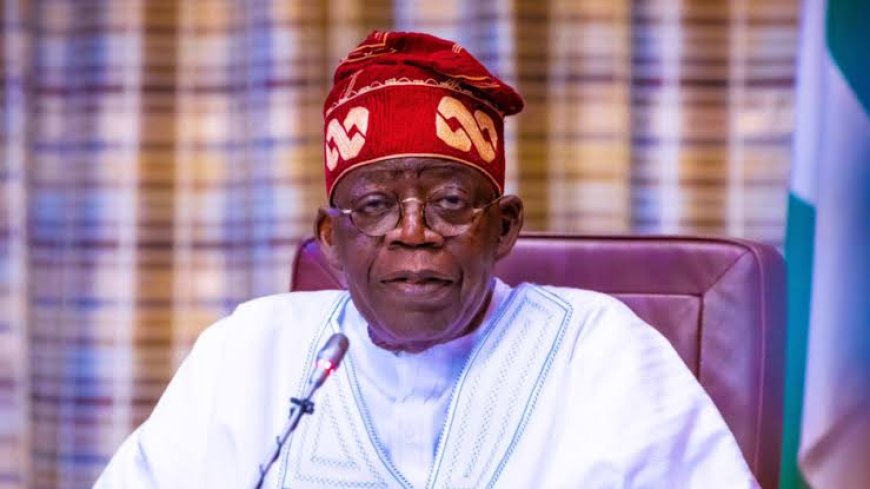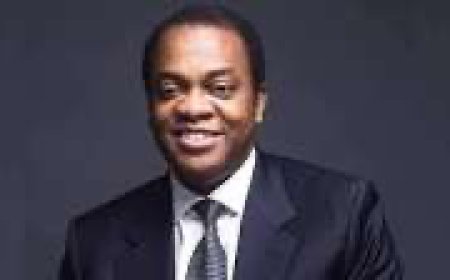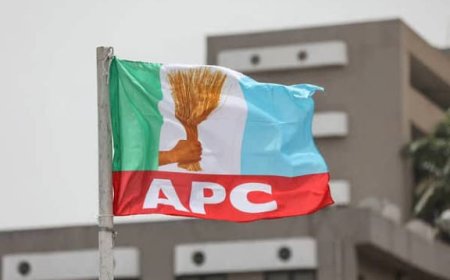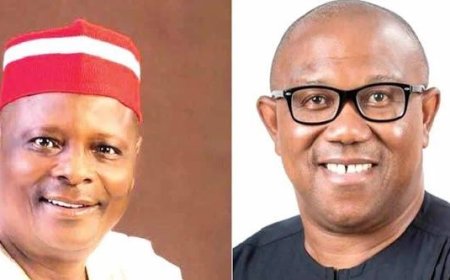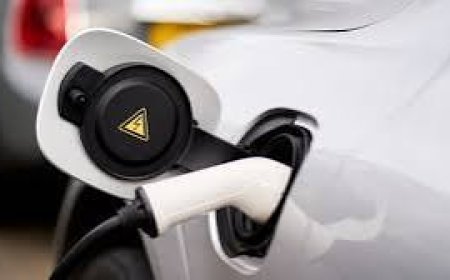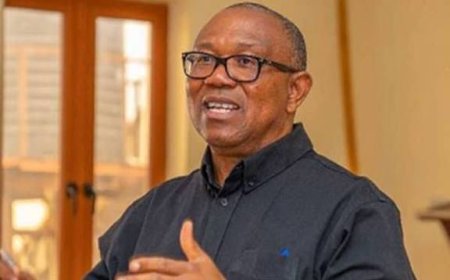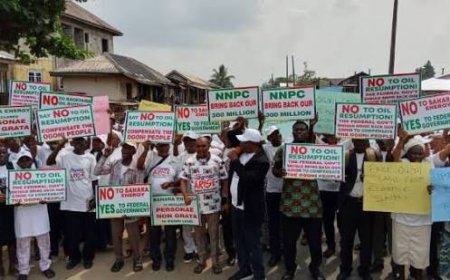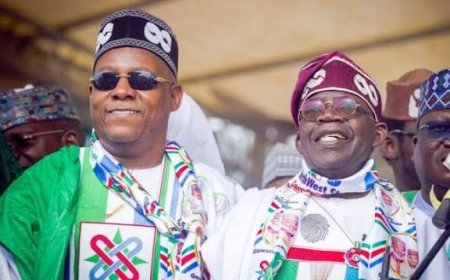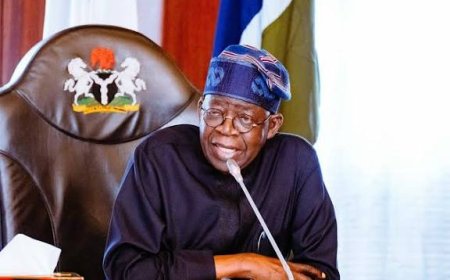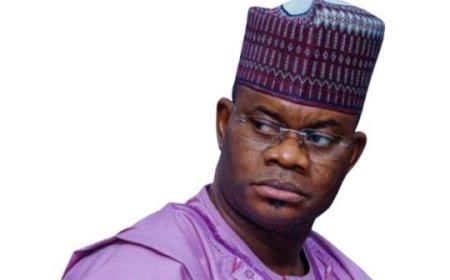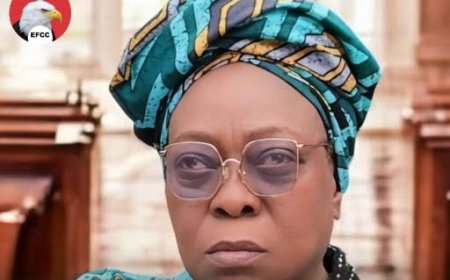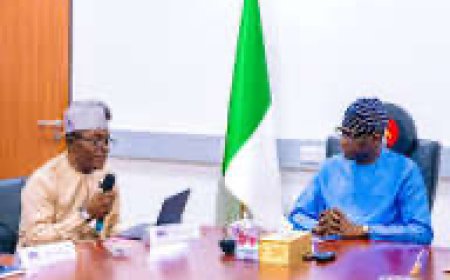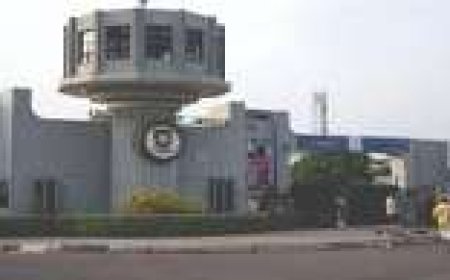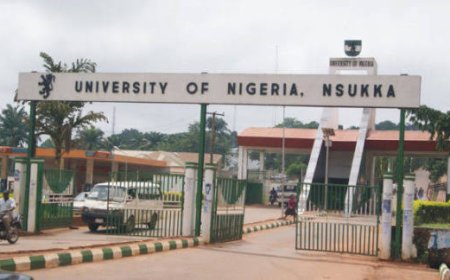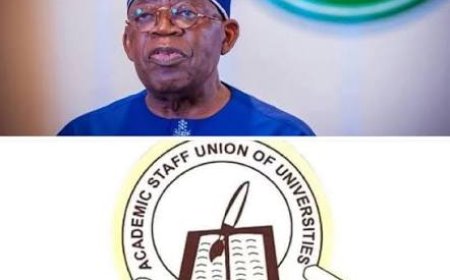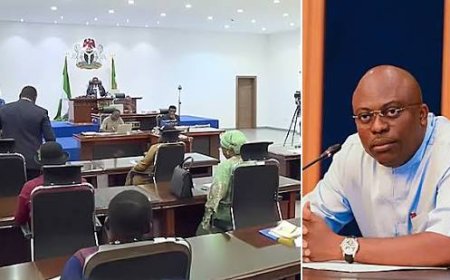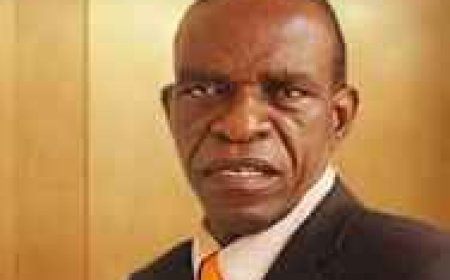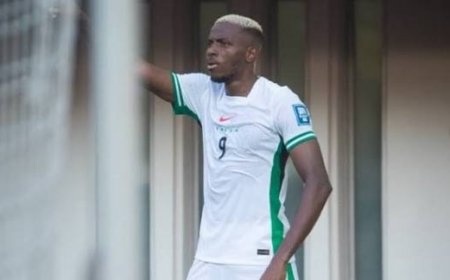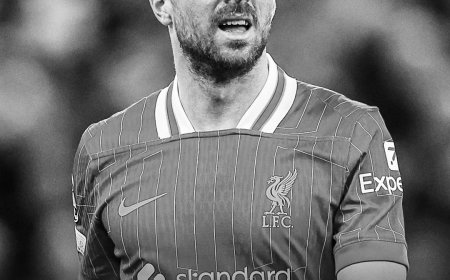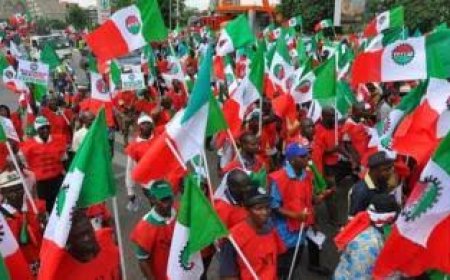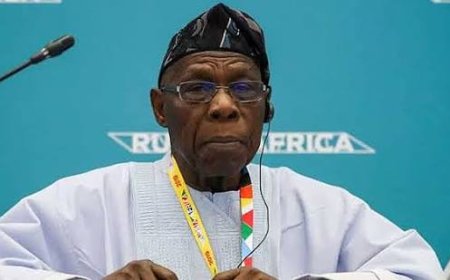By Amarike Akpoke
The choice of President Bola Ahmed Tinubu as ThisDay newspaper’s "Man of the Year" has ignited a storm of debate. On one side, there are arguments highlighting his bold, reformist stance and efforts to address Nigeria’s systemic challenges. On the other, there are the undeniable and grave consequences of his policies, including soaring inflation, widespread poverty, and increased hardship for ordinary Nigerians. This contestation begs the question: what does the title "Man of the Year" truly signify? Traditionally, the designation is intended to honour an individual whose actions have significantly impacted society within a given year. The impact may be transformative, disruptive, or even controversial, but the recognition often implies a degree of admiration for the positive changes brought about by the individual’s efforts.
There is no disputing that President Tinubu’s administration has embarked on audacious reforms - removing the fuel subsidy, unifying the exchange rate, and promising economic revitalization. However, these reforms, while arguably necessary, seem to have lacked the cushioning mechanisms to shield ordinary Nigerians from their brutal impacts. Today, millions of citizens grapple with poverty, hunger, and uncertainty about the future. The streets tell a tale of desperation, from families skipping meals to small businesses collapsing under the weight of escalating costs. The administration’s apparent inability to adequately mitigate these effects has led to a growing sentiment of disillusionment among the populace. If "Man of the Year" celebrates impact, one might argue that Tinubu qualifies; after all his policies have undeniably reshaped Nigeria’s socio-economic landscape. But if the title is meant to reflect positive contributions to the well-being of society, then the decision becomes harder to justify. Can a leader whose tenure has ushered in widespread hardship truly be the most deserving of this recognition? The newspaper’s editorial board appears to have weighed Tinubu’s ‘audacity,’ ‘courage’ and determination more heavily than the suffering caused by his policies. This choice raises deeper questions about the criteria for such awards and the values they promote.
Media organizations hold a unique power to shape public narratives. By naming Tinubu "Man of the Year," ThisDay seems inadvertently to be normalizing the idea that ambition and impact, regardless of their consequences, are sufficient grounds for recognition. This has the potential of setting a dangerous precedent, undermining the role of journalism as a watchdog for the people. Nonetheless, in fairness to ThisDay, the concept of “Man of the Year” has its origins in journalistic tradition, where exceptional individuals whose actions significantly shaped the year are spotlighted. First popularized by Time magazine in 1927, the accolade was originally intended to reflect influence, whether positive or negative. Charles Lindbergh, the first recipient, was celebrated for his pioneering solo transatlantic flight. Over time, the title has evolved, taking on varying interpretations depending on societal values and media biases. To that extent, it is within the exclusive rights and privileges of the ThisDay’s group of editors to choose its ‘Man of the Year’.
In contemporary applications, "Man of the Year" often serves as both recognition and a lens through which society assesses leadership, courage, and innovation. Yet, its relevance and integrity rest heavily on the criteria used for selection, particularly in environments rife with socio-political challenges like Nigeria. The early iterations of "Man of the Year" revolved around celebrating transformative impact. Figures like Franklin D. Roosevelt (for his leadership during the Great Depression) and Mahatma Gandhi (for his role in nonviolent resistance) exemplified how the title honoured those who brought hope, change, or resilience to their societies. Importantly, the accolade was not without controversy; Adolf Hitler (1938) and Joseph Stalin (1939, 1942) were chosen for their undeniable global impact, albeit negatively. This underscores that influence, not morality (as it seems to be case of ThisDay’s choice of President Tinubu), has sometimes been the guiding principle.
Today, the title has expanded beyond politics to celebrate achievements in science, business, entertainment, and humanitarian efforts. Media houses globally use it to draw attention to individuals they perceive as embodying progress or confronting existential challenges. For example, in 2019, Time magazine named Greta Thunberg its youngest-ever Person of the Year for her climate activism, reflecting a shift towards championing global causes. In the Nigerian context, however, the title appears to have been used most often to glorify political and economic elite, with little interrogation of their actual contributions to societal well-being. This trend risks eroding the concept’s credibility, particularly when selections appear disconnected to the realities of ordinary citizens. The foregoing explains why the designation of President Bola Ahmed Tinubu as THISDAY newspaper’s “Man of the Year” invites a critical reassessment of the criteria underpinning such accolades. While THISDAY lauds his “audaciousness” and “courage” in taking hard decisions, not a few Nigerians view these policies as exacerbating their plight. This raises important questions: Should the title reward mere action, regardless of its consequences? Does "audacity" justify recognition when it burdens the vulnerable? Is the concept of ‘Man of the Year’ being co-opted to sanitize leadership failures? It is not certain that the Nigerian public will align with THISDAY’s judgment, given the yawning gulf between governance outcomes and citizens’ realities.
For the "Man of the Year" concept to retain its value, it must balance influence with positive impact. In a nation grappling with economic hardship, insecurity, and social fragmentation, the media should prioritize recognizing individuals or groups who embody resilience, inspire collective action, and contribute to societal healing. These could include but not limited to social entrepreneurs addressing unemployment; activists (not ‘cashvists’) championing human rights; innovators creating sustainable solutions to everyday challenges; and most importantly, the ordinary Nigerians! In any fair reckoning of the past year’s events, one group stands out not for wielding power or implementing policies but for their extraordinary resilience in the face of unprecedented challenges. If there is a deserving recipient of the title "2025 Man of the Year," it is the ordinary Nigerian, the unsung hero who has endured the brunt of economic hardship, social instability, and policy missteps of government with dignity and courage.
This recognition is not rooted in platitudes but in a genuine appreciation of the perseverance and ingenuity of everyday citizens who, against all odds, have managed to navigate one of the most tumultuous periods in Nigeria’s history. Their daily struggles embody the spirit of survival, making them the true protagonists in a narrative dominated by adversity. The President Tinubu years have been characterized by an avalanche of economic challenges, many of which have placed crushing burdens on the average Nigerian. The removal of fuel subsidies, coupled with soaring inflation, has driven up the cost of living to unbearable levels. Transportation costs have skyrocketed, food prices have surged, and basic necessities have become luxuries. Despite government assurances that the removal of subsidies would herald economic recovery and infrastructural development, the reality for most Nigerians has been a stark contrast. Families have had to make impossible choices: sending children to school or feeding them; seeking medical care or paying rent. The country's middle class, already fragile, continues to erode as more Nigerians slip into poverty. Through it all, ordinary Nigerians have displayed remarkable resilience. From market traders finding innovative ways to stay afloat to farmers braving insecurity to put food on the nation's table, the spirit of the people has remained unbroken. They are the bedrock of the nation's economy, and their tenacity deserves recognition.
The policies implemented by the current administration, though heralded as bold and transformative, have often come at great human cost. The removal of fuel subsidies, for instance, was executed without adequate social safety nets, leaving millions exposed to economic shocks. While government officials and the elite could absorb the impact, the ordinary Nigerian bore the brunt. This disconnect between policy and reality is a recurring theme. Consider the energy sector: promises of stable electricity supply remain elusive, forcing families and businesses to rely on costly generators. Insecurity, particularly in rural areas, has made daily life a gamble, with many communities left vulnerable to banditry and terrorism. Yet, amid these challenges, Nigerians have shown an unmatched ability to adapt. Informal savings schemes have become lifelines for families, while community support networks have stepped in where government interventions have fallen short. This collective ingenuity underscores the people’s capacity to endure and innovate even in the direst circumstances.
Economic hardship is not merely a matter of statistics; it exacts a silent but devastating toll on individuals and families. Hunger, malnutrition, and preventable diseases have become more prevalent. Reports of increased mental health challenges, particularly among young people, highlight the psychological strain of trying to make ends meet in a struggling economy. How about those who lost out eventually through no fault of theirs except their genuine patriotic quest to hold the government of the day accountable? During the #EndBadGovernance protests and fatal scramble for palliatives in Ibadan, Okija, and Abuja, the ordinary Nigerian’s famished land got saturated with human blood. And whose blood? Of course, the blood of ordinary Nigerians! Despite these grim realities, the ordinary Nigerians have not given up. They continue to strive, hoping for a better future. Parents sacrifice personal comforts to ensure their children’s education. Young entrepreneurs leverage technology and social media to create new opportunities. Artists and storytellers use their crafts to bring attention to the struggles of the masses, inspiring hope and advocating change. It is easy to measure a nation’s progress by its GDP or infrastructural advancements, but the true measure of a country lies in the resilience and strength of its people. Nigerians have demonstrated that they are not passive victims of their circumstances but active participants in shaping their destinies. The street vendors navigating chaotic traffic to sell their goods, the teachers persevering in poorly funded schools, the healthcare workers serving in under-resourced clinics represent the microcosmic faces of resilience. Their collective efforts sustain the nation, even when leadership falters.
The "Man of the Year" accolade has traditionally been awarded to individuals who have demonstrated extraordinary influence, whether through leadership, innovation, or impact. However, this year, the collective resilience of ordinary Nigerians eclipses any single figure. Their quiet heroism in the face of systemic failures and economic mismanagement makes them the most deserving recipients. This choice is not merely symbolic but a call to action. By recognizing ordinary Nigerians, we draw attention to the urgency of addressing their struggles. It is a reminder to policymakers and leaders that their decisions have real, tangible impacts on the lives of millions.
While celebrating the resilience of ordinary Nigerians, it is crucial to emphasize that resilience should not be a permanent state of nature. No citizenry should be perpetually forced to endure hardship as a way of life. The government must take urgent steps to bridge the gap between policy intentions and outcomes. In a year marked by hardship and uncertainty, ordinary Nigerians have emerged as the true heroes. Their resilience, resourcefulness, and determination have sustained the nation through one of its most challenging periods. By declaring them "Man of the Year," we celebrate not just their endurance but their indomitable spirit. More importantly, we send a message that their sacrifices will not go unnoticed, and their struggles deserve urgent redress.
As we look to the future, let this recognition serve as a catalyst for meaningful change, a timely reminder that leadership must always prioritize the well-being of the people it serves. Ordinary Nigerians have carried the weight of the nation's challenges; it is time for the nation to reward their faith with policies and actions that uplift and empower. The title of “Man of the Year” carries with it a responsibility to reflect society’s aspirations and values. Recognizing leaders whose actions exacerbate hardship risks alienating the public and undermining the credibility of both the title and the institution conferring it. Overall, the concept should celebrate not just audacity but accountability; not influence but empathy; not decisions but their transformative outcomes; not courage but the unmatched resilience and the ultimate supreme sacrifice of the ordinary Nigerians!
